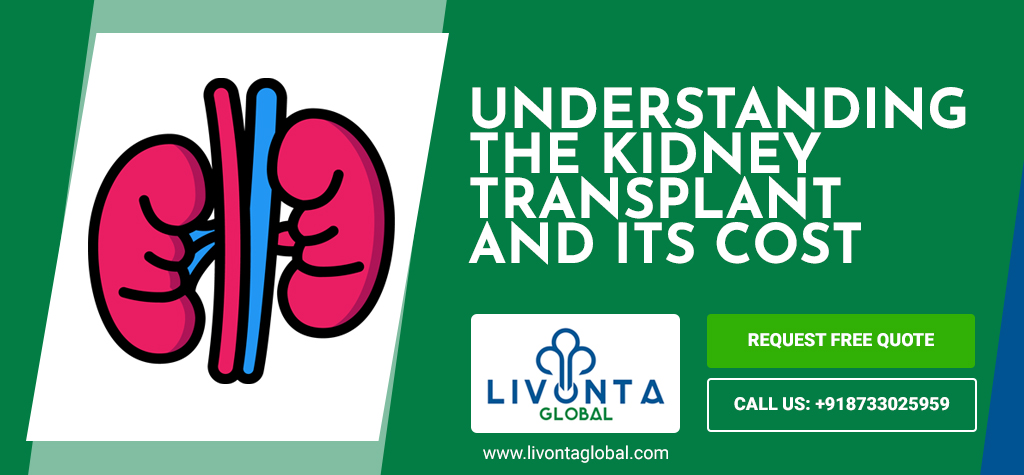The role of kidneys in a person’s life is simply undeniable. This is an important organ which purifies the blood and excretes wastes from your body. Kidney transplant is a surgical procedure which is recommended in cases of complete kidney failure. When your kidneys can’t function properly, waste products and other harmful liquids start getting accumulated inside the body. This can enhance your blood pressure and may lead to other severe diseases. A kidney transplant is a medical procedure in which an expert replaces the damaged kidneys with healthy ones from a donor. There are many hospitals which provide the best kidney transplant in India. You can get in touch with Livonta Global which holds an impressive profile in the field of medical science. Livonta Global is partnered with 100+ hospitals and 1000+ specialists who are proficient and possess in-depth knowledge in the medical field. Livonta Global also provides assistance to foreign patients who are looking for an affordable kidney transplant in India.
What Are the Different Types of Kidney Diseases?
 (image courtesy:i.ytimg.com)
(image courtesy:i.ytimg.com)
Now, take a look at the list of different types of kidney diseases.
- Alport Syndrome
- Diabetic Nephropathy
- Fabry Disease
- Focal Segmental Glomerulosclerosis
- Glomerulonephritis
- IgA Nephropathy (Berger’s Disease)
- Kidney Stones
- Minimal Change Disease
- Nephrotic Syndrome
- Polycystic Kidney Disease (PKD)
Legal Conditions for a Kidney Transplant in India
There are certain rules for a kidney transplant in India. These rules are,
- Only close relatives can donate a kidney to the patient. The close relatives are siblings, parents, children and spouse.
- If you don’t have any close relative, then for a donor, the government permission is required.
- If the patient can’t arrange a donor on his own, he or she needs to register himself or herself and be a part of the waiting list. The list can be long, and the patient needs to continue dialysis till then.
Kidney Transplant Procedure
 (image courtesy:drugsafetynews.com)
(image courtesy:drugsafetynews.com)
In a kidney transplant procedure, the diseased kidney transplanted with a healthy kidney of a donor. Several tests need to conduct which can evaluate how well the donor’s kidney matches with the receiver’s tissue type and blood type. Kidney transplant surgery is a longer procedure and it may take nearly 3 to 4 hours. General anaesthesia is given to the patients for kidney transplantation.
During the process, an incision is made in the lower abdomen for easy access to the diseased kidney. Then, the donor’s kidney is placed in a different location from the existing one. The renal artery and vein of the donor’s kidney are sewn to the external iliac artery and vein. Now, the ureter of the donor is connected to the recipient’s bladder. After that, the surgeon closed all the incisions with sutures and a sterile dressing is applied.
The Recovery Period After a Kidney Transplant
A patient needs a minimum of 4-6 weeks for recovery after the transplantation. The patient needs to stay for some days in the hospital. The number of days depends on certain factors like,
- Type of kidney transplant
- How the body can adapt a new organ
- Overall health condition
- Immuno-deficiency conditions
What Happens During the Recovery Period?
- Once you get discharged from the hospital, several medications are prescribed with the exact dosage to speed up your recovery. The hospital team will tell you the medicine regime and will give you all post-operative instructions.
- You should monitor your condition daily. For example, you need to measure the liquid intake and urine output for at least 6 weeks after the transplantation. You can also record body temperature, blood pressure and weight every day.

Leave a Comment